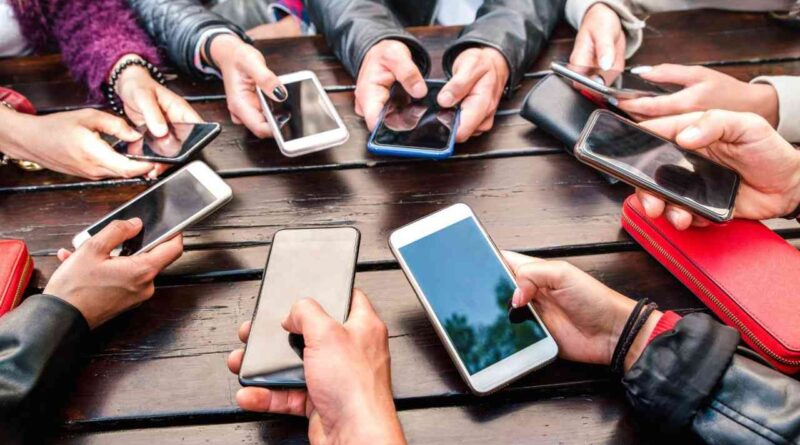Unmasking the Silent Threat of Phone Addiction in Nigeria
In today’s fast-paced digital world, smartphones and social media are deeply woven into daily life. They shape how people connect, learn, and work. But behind this convenience lies a growing concern phone addiction, especially among Nigerian youth.
More than just a habit, this dependency is quietly eroding mental health, damaging relationships, reducing productivity, and harming physical well-being. Experts say the nation may be facing a digital health crisis if urgent steps aren’t taken.
Nigeria’s Digital Obsession
Nigeria is one of Africa’s most active nations online. Millions are glued to platforms like Instagram, TikTok, X (formerly Twitter), Facebook, and Snapchat. According to DataReportal’s 2024 report, the average Nigerian youth spends up to 3–5 hours daily on social media. That number is rising.
Read Also: Tension Rises in Ondo as Two University Students Remain Missing
What starts as a harmless scroll during lunch can quickly spiral into compulsive usage. Refreshing timelines, chasing likes, and watching endless videos have become a norm for many. The addiction often goes unnoticed but its effects are undeniable.
Mental Health Is Suffering
Studies link prolonged social media use with rising cases of anxiety, depression, and low self-esteem. Young Nigerians, constantly exposed to curated images of “perfect” lives, begin to question their own worth. A student in Lagos might feel inadequate because she doesn’t own the latest gadgets or can’t keep up with flashy online trends. The pressure to be seen, liked, and followed is taking a toll on emotional well-being.
Disconnected in a Connected World
Phone addiction is damaging real-life relationships. It’s now common to see couples dining together in silence, eyes fixed on their screens. At home, family time is interrupted by constant notifications. Parents, lost in their devices, spend less time engaging with their children unintentionally passing on digital dependence to the next generation.
Academic and Workplace Decline
In classrooms and offices, attention spans are shrinking. Students struggle to focus during lessons. Assignments suffer. In the workplace, employees drift away from tasks, distracted by trends and viral content. This loss of focus is quietly affecting learning outcomes and workplace productivity across the country.
Health and Sleep Disruption
Excessive screen time also affects the body. The blue light from screens disturbs sleep, causing insomnia and fatigue. Many young Nigerians report eye strain, neck pain, and posture issues from long hours on their phones. These physical symptoms are often overlooked but add to the growing health concerns tied to device overuse.
Finding Balance
The first step to solving this issue is awareness. Nigerians must begin to set healthy limits on phone usage. Simple steps like reducing screen time, disabling unnecessary notifications, and creating phone-free zones at home can make a difference.
Parents and educators must also guide young people on responsible tech use. The government can support this by launching nationwide digital wellness campaigns through the Ministries of Health and Education.
Tech companies should play their part too. Encouraging features like screen time reminders, quiet modes, and app timers can help users regain control of their digital habits.
A Wake-Up Call
Technology is here to stay. But its misuse should not be allowed to shape the future negatively. As phone and social media addiction continues to grow, Nigeria must act not with panic, but with purpose.
True connection doesn’t come from the number of followers or views. It begins in real-life interactions, offline moments, and intentional living. It’s time to look up from the screen and truly live.
Content Credit| Dada Blessing
Image Credit | vanguardngr.com




